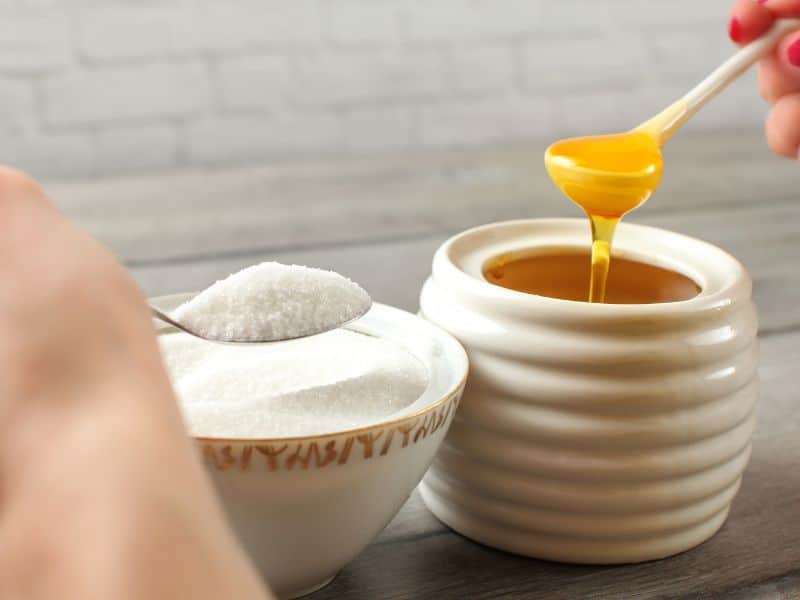Healthy Sugar Alternatives: Enjoy Sweetness Without Worries!

Sugar is an inevitable sweetener in the daily lives of many of us. Whether we consume it in its pure form as an additive to drinks and foods or unknowingly in hidden forms within processed products, it can pose serious health problems. In this article, we will explore the harms that excessive sugar consumption can cause and introduce you to some natural and healthier alternatives to this sweet adversary of modern society.
The Harms of Excessive Sugar Consumption:
Sugar may be tempting, but when overindulged, it can lead to significant health issues. Here are some of the harms associated with excessive sugar consumption:
- Increased risk of type 2 diabetes: Sugar, especially high-glycemic carbohydrates, can lead to insulin resistance, a precursor to type 2 diabetes. Constant fluctuations in blood sugar levels can lead to serious health issues.
- Elevated risk of heart diseases: Excessive sugar consumption can increase triglyceride levels in the blood and reduce HDL cholesterol levels, raising the risk of heart diseases.
- Excessive fat accumulation: Sugar, once consumed, converts into fats that accumulate in tissues. This can contribute to excessive fat storage and obesity.
- Increased risk of obesity: Sugar not only transforms into fat but also stimulates appetite, leading to excessive calorie intake. This cycle can result in gaining extra pounds.
- Dental caries and tooth problems: Sugar consumption can promote the growth of cariogenic bacteria in the oral cavity, potentially causing dental problems and cavities.
- Elevated Risk of Metabolic Syndrome and Hypertension: Metabolic syndrome, characterized by factors such as high blood pressure, disrupted glucose metabolism, and excess weight, is exacerbated by sugar consumption.
Natural Sugar Alternatives:
Fortunately, there are numerous natural sugar alternatives that can not only provide sweetness to your dishes and beverages but also offer several health benefits. Here are some of them:
- Honey: Honey is rich in antioxidants and possesses antiseptic properties. It can be used as a natural sugar substitute in tea, nuts, and desserts.
- Maple Syrup: This syrup is rich in minerals and vitamins, making it perfect for adding to snacks or preparing sweets.
- Stevia: Stevia is a low-calorie sugar substitute suitable for diabetics. It is known for its sweet properties and zero calories.
- Coconut Sugar: Derived from coconut palm flowers, this low-glycemic sugar substitute has a sweet taste and can be successfully used in various recipes.
- Fructose: Natural sugar found in fruits, fructose is sweeter than regular sugar and can be used in moderate amounts as a sugar substitute.
Why Natural Alternatives Are Better:
- Natural origin: The fact that these substitutes are derived from plants and fruits makes them healthier and richer in nutrients compared to artificial sweeteners.
- Low glycemic index: Most natural alternatives have a lower glycemic index than regular sugar, helping stabilize blood sugar levels.
- Zero or lower calories: Many natural substitutes, like stevia, have zero or fewer calories than sugar, making them suitable for those aiming to lose or maintain weight.
In conclusion, replacing sugar with natural alternatives can be a sensible step towards improving your health. Experiment with different natural substitutes in your culinary routine and enjoy sweetness without concerns for your body.
